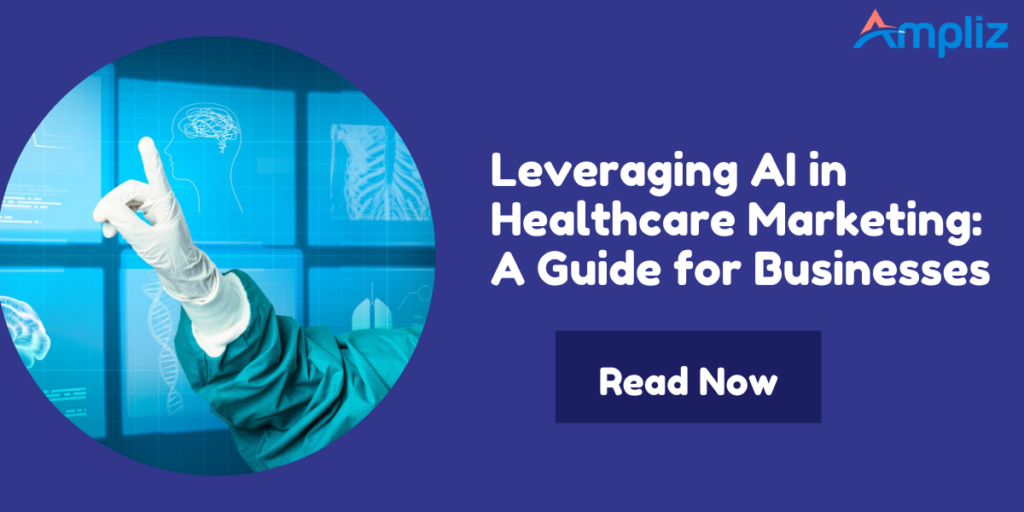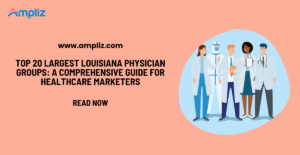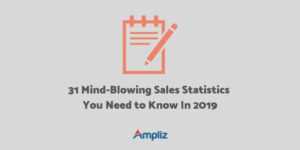As the healthcare industry continues to evolve, so does the marketing landscape. Traditional marketing strategies are giving way to more sophisticated, data-driven approaches and Artificial Intelligence (AI) plays a pivotal role in this transformation. Healthcare marketing faces unique challenges, such as navigating stringent regulations, targeting specific demographics, and building trust with patients. AI in healthcare marketing offers a competitive edge by enabling healthcare companies to harness the power of data and derive actionable insights.
By delving into the nuances of AI applications in healthcare marketing, this guide will equip businesses with the knowledge to make informed decisions regarding AI adoption and implementation.
Healthcare Marketing in the Digital Age
In recent years, the healthcare industry has undergone a significant transformation in its approach to marketing due to the digital age. Traditional marketing methods, such as print advertisements and billboards, have gradually given way to more sophisticated and data-driven strategies. The digital revolution has empowered healthcare marketers to reach their target audiences with unprecedented precision and engage with patients more personally.
The significant aspects of digital promotion in the medicinal industry embrace:
- Shift to Digital Channels: The rise of the internet and social media has transformed how healthcare organizations communicate with their audience. Websites, social media platforms, email campaigns, and mobile apps have become essential tools for distributing information, promoting services, and fostering patient relationships.
- Content Marketing: Informative and educational materials are now a cornerstone of healthcare marketing. By offering valuable insights into medical conditions, treatments, and preventive care, marketers can establish their expertise, build trust with patients, and attract a broader audience.
- Focus on Personalization: With access to extensive data, healthcare marketers can segment audiences based on demographics, behaviors, and preferences. Personalized marketing efforts, such as targeted emails or tailored advertising, result in higher engagement rates and improved patient experiences. Visual elements like stock vectors including health, medical, etc can make complex healthcare concepts easier to grasp, improving the clarity of marketing materials and patient education content.
- Emphasis on Patient Experience: In the digital age, patient-centricity is paramount. Businesses strive to provide seamless and positive experiences at every touchpoint, from appointment scheduling to post-treatment follow-ups, to cultivate patient loyalty and advocacy.
How AI Transforms Healthcare Marketing
Data has become the lifeblood of modern healthcare marketing. The wealth of information generated through digital interactions provides invaluable insights for crafting effective marketing strategies. And AI, with its impressive data collection, processing, and analyzing capabilities, is a powerful tool for gaining info to hone innovative and efficient promotional approaches.
The benefits of AI agents in this context are particularly noteworthy, as they can automate and optimize various aspects of healthcare marketing.
In the realm of healthcare marketing, AI is a transformative force guiding the efforts of medical marketers in the digital era and helping them to deliver exceptional value to patients and stakeholders alike.
Patient Experience Personalization Though AI-Driven Content
Traditionally, healthcare marketing content has been relatively static and generic. However, smart tech empowers marketers to utilize patient data and behavioral insights to tailor content to individual preferences and needs.
- Data analysis for personalization: AI algorithms analyze huge data blocks, including medical history, demographic information, online behavior, and past interactions with the healthcare organization. This info helps create a comprehensive profile of each patient.
- Content customization: Armed with patient profiles, the tech generates custom-tailored materials, such as targeted emails, relevant articles by AI writers with photos generated by an AI image editor, and educational materials that resonate with specific individuals. This approach ensures that patients receive information that is most relevant to their medical conditions and interests.
- Improved engagement: In the realm of healthcare marketing, optimized engagement becomes even more crucial, especially in the context of a remote workforce. Personalized content fosters stronger engagement, as patients feel valued and understood by the healthcare provider. As a result, they are more likely to interact with tailored materials, leading to increased brand loyalty and better adherence to treatment plans.
For example, instead of firing every in-house marketing content writer and using an AI writing assistant to create the content, let your writers use the tool creatively to increase productivity. Some companies are using this strategy to keep content creation costs down while getting more done
Enhanced Communication With AI Chatbots
These virtual assistants provide instant responses to individual queries, offer medical advice, and streamline communication between patients and healthcare organizations.
- 24/7 availability: Available round-the-clock, talk bots provide patients with immediate responses to their questions, even outside regular business hours. This accessibility enhances patient satisfaction and builds trust in the healthcare brand.
- Efficient triage and assistance: Conversational helpers can conduct initial triage by asking individuals about their symptoms and providing appropriate guidance. This not only expedites patient care but also relieves the burden on healthcare staff.
- Seamless appointment scheduling: Chatbots can assist patients in booking appointments, checking availability, and sending reminders. This automated process simplifies appointment booking, reported to significantly reduce no-show rates and enhance patient follow-through.
Understanding Patient Behavior Through Predictive Analytics
By analyzing historical patient data and real-time interactions, predictive analytics can forecast future patient actions and help healthcare marketers make data-driven decisions.
- Identifying patient patterns: Predictive analytics examines patient data to identify patterns and trends, and this analytical approach is equally valuable in the domain of telehealth app development. By leveraging predictive algorithms, developers can gain insights into individual preferences, the likelihood of seeking specific healthcare services, and potential factors influencing patient decisions, allowing for the creation of highly personalized telehealth experiences that cater to the unique needs and preferences of each user.
- Segmentation and targeting: Based on predictive insights, medical businesses can segment their audience more effectively. Tailored campaigns targeted at specific patient groups lead to higher engagement rates and more successful conversion.
- Optimizing marketing strategies: Predictive analytics aids in optimizing marketing efforts by allocating resources to the most promising channels and strategies. Organizations can focus on initiatives that have a higher chance of delivering positive outcomes, ensuring better returns on marketing investments. Moreover, organizations can partner with experienced AI development companies to further enhance their predictive analytics capabilities and drive more effective marketing strategies.
Recommendation Systems for Medical Products and Services
These systems leverage patient info, habits, and medical history to suggest relevant products and services, leading to increased satisfaction and revenue generation.
- Personalized recommendations: Smart systems rely on medical data analysis to recommend personalized healthcare products, such as medical devices, wearables, and supplements, based on individual health needs.
- Tailored treatment plans: For healthcare providers, such systems can assist in suggesting personalized treatment plans based on a patient’s medical history, diagnostic information, and response to previous therapies.
- Cross-selling and upselling opportunities: By understanding individual preferences, AI can identify opportunities for cross-selling complementary products or upselling higher-tier services, benefiting both patients and healthcare organizations.
Implementing AI in Healthcare Marketing: Steps to Follow
By embracing the power of AI, medical service providers can optimize their marketing efforts, significantly improve patient experiences, and achieve a competitive advantage in the dynamic healthcare landscape.
Implementing smart tech in healthcare marketing requires a strategic approach entailing the following steps.
1. Assessing Company’s Readiness for AI Adoption
Introducing smart tech to healthcare marketing is a complex process. And before you launch it for your organization, you should first assess its readiness and capabilities. This step ensures that the adoption process is smooth and aligns with your business goals.
- Define objectives: Clarify specific marketing objectives you aim to achieve through AI adoption. Whether it’s improving patient engagement, increasing conversions, or optimizing campaign performance, clear goals will guide your AI strategy.
- Evaluate data infrastructure: Since smart tech heavily relies on data, you should assess your organization’s data infrastructure, including data storage, quality, and accessibility. Ensure that info is collected and stored securely and that you adhere to privacy regulations.
- Engage internal stakeholders: Garner support from key stakeholders within your organization, such as senior management and marketing specialists. Educate them on the benefits of AI and its potential impact on marketing using an interactive training video.
- Allocate resources: Evaluate your budget and resources dedicated to AI implementation. Determine the financial investment required for smart tools, training, and ongoing support.
2. Identifying the Right Smart Tools and Tech to Use
To successfully implement smart tech in healthcare marketing, it’s crucial to select appropriate AI tools. Here is how you can identify the right solutions.
- Conduct in-depth research on AI instruments and technologies tailored to healthcare marketing needs. Look for platforms that offer features like data analysis, predictive analytics, natural language processing, and personalization capabilities.
- Evaluate different vendors based on their reputation, track record, customer reviews, and scalability of their solutions. Request demos and proofs of concept to assess how well the tools align with your marketing objectives.
- Ensure that the AI solutions you choose prioritize data security and comply with healthcare regulations, such as HIPAA. Avoid vendors with inadequate data protection measures.
- Pick smart tools that seamlessly integrate with your existing marketing systems, such as customer relationship management (CRM) platforms and marketing automation software.
3. Integrating AI With Current Marketing Strategies
Smooth integration requires careful planning and close cooperation across departments. You can achieve it through
- Team collaboration: Foster collaboration between marketing teams, IT, data analysts, and AI experts. They should work together to ensure that AI complements your existing promotional efforts rather than replaces them.
- Pilot projects: Start with pilot projects to test the effectiveness of intelligent technology in specific promotional campaigns. Monitor the outcomes and gather feedback from teams to identify areas for improvement.
- Gradual employment: Roll out AI implementation gradually to avoid overwhelming your marketing teams. Focus on one or two priority areas and expand as teams become comfortable with the technology.
- Data integration: Integrate smart tools with your data systems to enable seamless data flow. Ensure that data is cleansed, standardized, and accessible to intelligent algorithms. The utilization of big data in healthcare holds immense potential for revolutionary advancements.
4. Training and Upskilling Marketing Teams
Invest in training and upskilling your promotional teams to effectively use AI tools. This will let you maximize the benefits of AI in healthcare marketing.
- Provide comprehensive training on AI concepts, terminology, and applications relevant to healthcare marketing. Ensure that your staff understands how the tech can improve their promotion strategies.
- Offer hands-on training on the AI tools and technologies chosen for your marketing efforts. Familiarize your specialists with the functionalities and best practices for using these instruments effectively.
- Educate your teams on data literacy, enabling them to interpret and analyze data insights generated by smart algorithms. This will help them make data-driven marketing decisions.
- Encourage continuous learning and professional development. Stay updated on AI advancements in healthcare marketing to remain competitive and innovative.
Businesses That Already Use AI in Healthcare Marketing
Here are a few real-life examples of companies that have already embraced smart tech for their promotional efforts in a medicinal area:
- Prognos Health specializes in using AI and advanced analytics to identify and predict disease risks. Their platform aggregates and analyzes patient data to support life sciences and healthcare companies in marketing and patient engagement strategies.
- Doc.ai offers an AI-enabled platform that collects and analyzes personal health data to generate insights for individuals. Their goal is to empower patients with a deeper understanding of their health and enable personalized health recommendations.
- Optum, a subsidiary of UnitedHealth Group, employs AI and data analytics to improve healthcare operations, enhance patient outcomes, and optimize healthcare marketing strategies.
- Buoy Health is a digital health platform that provides personalized health assessments and symptom checking. It guides users to appropriate healthcare resources and services based on their reported symptoms.
- AiCure uses intelligent technology to improve medication adherence and patient engagement in clinical trials and medical settings. Their platform uses smartphone technology to visually confirm medication ingestion and track patient behavior.
Summing Up
AI in healthcare marketing is not just a trend but a transformative force that has great potential to shape the future of patient care and promotional strategies. As smart technologies continue to advance, healthcare businesses that embrace AI will thrive in an ever-evolving industry, delivering superior patient experiences and achieving sustainable growth in the healthcare landscape.
Author bio:
Roy Emmerson is the co-founder of TechTimes.com, a B2B SaaS platform that helps businesses stay up-to-date on the latest technology trends. With over a decade of experience in the tech industry, Roy is a thought leader in the field and is passionate about helping companies embrace new technologies to improve their operations and drive growth.



